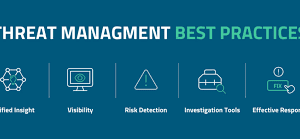Running a small business is no small feat. Small business owners are often stretched thin, juggling long hours and a growing list of responsibilities, from managing day-to-day operations to handling marketing, HR, and everything in between. It’s easy to see why financial planning sometimes takes a backseat. That’s where financial advisors step in—they’re there to help small business owners stay on top of their financial health while also planning for future growth.
Key Benefits of Financial Advisors for Small Business Owners
Financial advisors bring so much more to the table than just managing investments. They provide guidance on a wide range of topics, from choosing the right insurance to planning for the future of the business.
Here are some key ways they help:
1. Financial Planning
Comprehensive financial planning is essential for small business success. Financial advisors assist with budgeting, cash flow management, and forecasting, helping business owners make informed decisions. With a solid financial plan in place, owners can focus on running the business while staying prepared for what’s ahead.
2. Tax Planning
Tax time can be stressful for any small business, but with the right planning, it doesn’t have to be. Financial advisors work closely with owners to develop strategies that minimize tax liabilities. This helps reduce the overall tax burden, leaving more room for profits and improved cash flow.
3. Retirement Planning
Many small business owners put retirement planning on the back burner, choosing instead to reinvest in their business. However, financial advisors can help them establish retirement plans for both themselves and their employees. These plans secure the owner’s financial future while also boosting employee retention and satisfaction.
4. Investment Planning
Financial advisors help grow the business’s investment portfolio by developing a diversified strategy that aligns with the owner’s goals and risk tolerance. While many small business owners are inclined to reinvest profits directly into the company, advisors encourage exploring alternative investments that offer stability and long-term growth.
5. Business Succession
Thinking ahead to when you’ll eventually leave the business can be daunting, but it’s crucial for long-term success. Financial advisors help small business owners plan for succession by evaluating the business’s worth and developing strategies to maximize its value when the time comes to transition out of ownership.
6. Cash Management
Managing cash flow is often one of the biggest challenges for small businesses, especially those with seasonal or cyclical operations. Financial advisors assist by helping owners anticipate cash shortfalls and surpluses, ensuring there’s enough in reserves to handle fluctuations and maintain stability year-round.
7. Working with Other Professionals
Financial advisors often collaborate with a team of specialists—accountants, attorneys, and more—to provide small business owners with comprehensive support. By bringing together experts in different fields, advisors make sure owners receive well-rounded advice that fits their specific needs and goals.
Running a small business can be challenging, but having a trusted financial advisor in your corner makes it easier to navigate the complexities. From tax planning and cash management to retirement and succession planning, financial advisors provide the expertise and support small business owners need to achieve long-term success. With their help, owners can focus on what they do best—growing their business—while knowing their financial future is in good hands.
Read More From Techbullion



































